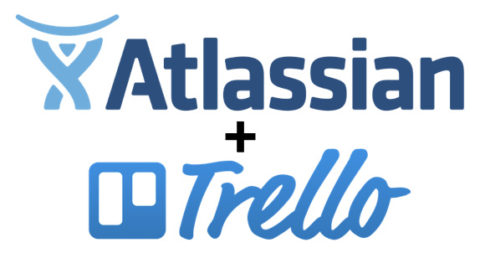Today Atlassian announced their intent to purchase Trello for $425M. Assuming all closing conditions and regulatory approvals are met, the deal will close before the end of the quarter.
$360M of the sale (or 85% of the sale price) will be in cash, with the remaining $65M coming through various methods of stock transference. Given that Atlassian had only $267M in cash and cash equivalents as of their last release of financial statements in September 2016, it can be presumed that at least some portion of the cash outlay will be financed through debt.
The company states that “Trello will become an important part of the Atlassian portfolio” but also reassures that it will let the product remain as a standalone offering. This is notable because there is a distinct overlap in functionality between Atlassian’s JIRA and Trello.
Trello offers a digital kanban board service. JIRA offers kanban functionality within the context of a more robust issue tracking and reporting tool. Atlassian’s now deprecated “JIRA Software vs Trello” page compared features between the products. While they were competitors, Atlassian found that Trello lacked JIRA’s ready to use workflows, agile planning and reporting, real-time release tracking, plug-and-play add-on marketplace, and cloud & server deployment options. It urged users to “choose the software development tool that’s the #1 software development tool used by agile teams.”
In that context, why acquire Trello? More specifically, why leave the product running as a standalone offering? The answer appears to be that Atlassian is viewing a market beyond software developers.
Both Atlassian and Trello mention their goal to acquire 100 million users; this shared goal is cited as part of the evidence of cultural fit in the acquisition. Contrast that goal of 100 million users with IDC’s 2014 estimate that there are 18.5 million software developers worldwide. If this estimate is ballpark correct, even if Atlassian achieved 100% penetration with developers, they are seeking a market roughly 5x bigger than the developer market that currently exists.
Atlassian previously viewed JIRA’s extensive functionality as a competitive advantage against Trello in the battle for reaching software developers. Now Atlassian apparently sees Trello’s pared down offering as a means to expand their reach beyond technical users.
According to the Wall Street Journal, “more than half of Trello’s users are working in nontechnical teams in finance, human resources, legal, marketing and sales.” This is a solid foothold within lines of business compared to Atlassian’s roughly 35% of users outside technical teams.
This acquisition positions Atlassian to grow both their developer and non-developer market share. By integrating Trello into their existing product portfolio, Atlassian hopes to grow their developer market through improved developer experience. By leaving Trello as a standalone product, Atlassian hopes to continue expanding their reach with nontechnical audiences.
Donnie Berkholz of 451 Research (and formerly a RedMonk analyst) did an excellent analysis about recent trends between JIRA and Trello. He pulled data that looked at mentions of each product using sources that provide a general perspective (Google searches) as well as a developer-focused perspective (Stack Overflow questions).
Google Trends – Trello (blue) vs Jira (red) pic.twitter.com/GK0A6mfooR
— Donnie Berkholz (@dberkholz) January 9, 2017
Counterpoint – Developer interest in Trello vs Jira. Questions/mo from Stack Overflow pic.twitter.com/FDiggxYHgJ
— Donnie Berkholz (@dberkholz) January 9, 2017
While there are plenty of ways to interpret these charts (including the idea that JIRA’s more complex functionality leads to more questions), it lends credence to the idea that Trello is gaining traction in the broader community. The deal thus appears to be based on the idea of capturing that broader market traction with Trello while sustaining the developer traction with JIRA.
Disclosure: Atlassian is a RedMonk client.

No Comments